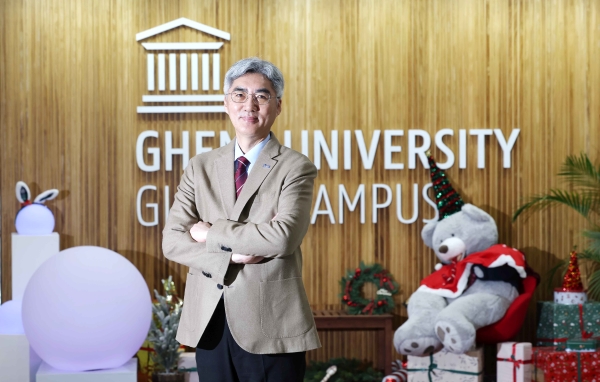[에듀플러스] <칼럼> 대한민국 미래 교육 혁신의 모델

교육은 우리나라 미래 주역을 양성한다는 점에서 정치·경제·사회 어떤 분야보다 중요한 영역이 아닐 수 없다. 하지만 국내 입시 위주의 전통적 교육제도는 학생들을 암기식 학습과 획일적 사고의 굴레에 가둬 창의성과 개별적 성장을 방해한다.
필자는 대학교육 제도의 혁신이 전체 교육제도 혁신의 요체라고 생각한다. 혁신을 위해 문제 진원지를 찾아 수술을 시작해야 하는데, 입시제도가 핵심인 현 교육제도의 정점엔 대학이 존재한다.
잠시 상상해보자. 한국의 어느 대학보다 세계 대학 순위가 높은 명문대학이 있다. 입학 절차는 화학과 수학에 초점을 맞춘 인터넷 시험을 통한다. 디지털 시대를 수용, 놀라울 정도로 접근성이 뛰어나다. 언제 어디서나 응시할 수 있고, 횟수 제한 없이 재응시할 수 있는 입시는 고등 교육을 민주화하고 다양한 학생에게 문호를 개방한다.
접근성을 넓힐 뿐 아니라, 전통적 시간제한이 있는 국내 입시와 관련된 부담과 불안감을 줄여준다. 3학년때 전공을 선택해 학생들에게 다양한 분야를 탐색하고, 자신의 열정을 이해하며 미래에 대한 현명한 결정을 내릴 수 있는 충분한 시간을 제공한다. 전공 선택 방식은 학생들이 자신이 선택한 분야에 더 만족하고 헌신하게 만든다.
대학에선 학생들이 졸업하려면 일반 대학의 거의 두 배에 달하는 240학점을 이수해야 하는 등 학업 성취도에 대한 높은 기준을 설정하고 있다. 광범위한 교과과정을 통해 학생들은 폭넓은 지식과 기술을 갖춘 종합적 교육을 받는다.
학습의 양적인 측면은 물론이고, 1학년에서 2학년으로 진급하는 학생이 50%에 불과할 정도로 엄격한 학업 환경을 통해 질적 측면도 높은 수준을 유지한다. 높은 기대치를 가지고 학교에 입학하는 학생들이 진정으로 준비된 인재로 양성하겠다는 대학의 의지를 보여준다.
어려운 학습 환경에 처한 학생을 지원하기 위해 대학은 튜터링 프로그램을 시행한다. 졸업생의 94.2%에 달하는 높은 취업률은 이러한 접근 방식의 효율성을 입증한다. 학생들이 학위뿐 아니라 관련 경험과 기술을 갖춰, 졸업 후 취업 가능성이 높다.
위 내용은 가상대학이 아니다. 산업자원통상부와 인천시의 미래비전 하에 인천 글로벌캠퍼스 내 설립된 개교 10주년을 맞이하는 벨기에 겐트대 글로벌캠퍼스 교육제도이다. 개방형 입학, 유연한 전공 선택, 엄격한 학업 요건, 지원적인 튜터링 시스템, 실용적 학습 접근 방식, 성공적 인턴십 프로그램 등을 갖췄다. 이는 포괄적이고 총체적 교육 경험을 제공한다. 한국 대학이 혁신하는데, 영감을 얻을만한 모델이다. 잠재적으로 한국의 고등 교육 환경을 혁신하는 새로운 표준을 제시할 수 있다.
혁신적이고 엄격한 교육방식을 수용해 대학은 학생들이 현대 사회의 복잡성에 잘 대비할 수 있도록 하고, 궁극적으로 숙련되고 적응력 높은 인력을 양성하는 임무를 완수한다. 우리나라 대학이 적어도 이런 정도의 체질 변화를 한다면 연쇄적으로 고등학교, 중학교, 초등학교, 유치원 교육의 완전한 질적 변화를 가져올 수 있다고 확신한다.
겐트대 글로벌캠퍼스가 지향하는 미래는 '킬러 질문'과 '사교육'이 사라지고 교육학자 존 듀이 박사의 말처럼 '교육이 미래를 준비하는 과정을 넘어 자연스러운 삶의 과정 자체'로 인식되는 것이다. 혁신과 이런 교육제도를 둔 미래지향적 대한민국을 꿈꿔본다.
[Column] Korea's Future Education Innovation Model
Education is no doubt the most important sector in politics, economics, and society in terms of fostering the future leaders of Korea. However, Korea's traditional education system, centered on entrance exams, limits students to rote learning and rigid thinking, hindering creativity and individual growth.
I believe that innovating the university education system is the key to innovating the entire education system. For innovation, we need to find the epicenter of the problem and start the operation. In the current education system with the entrance examination system at its center, universities are the pinnacle.
Picture this for a moment. There's a prestigious university that is ranked higher in the world than any other university in Korea. The admission process is through an online test that focuses on chemistry and math. Embracing the digital age, it's incredibly accessible. Entrance exams that can be taken anytime, anywhere, and retaken an unlimited number of times democratize higher education and open doors to a wide range of students.
Not only does it increase access, but it also reduces the pressure and anxiety associated with traditional, time-limited national admissions. Choosing a major in the third year gives students enough time to explore different fields, understand their passions, and make wise decisions about their future. This approach to major selection allows students to be more satisfied and committed to their chosen field.
The university sets high standards for academic achievement, requiring students to complete 240 credits to graduate, nearly twice the typical university. With a comprehensive curriculum, students receive a holistic education with a wide range of knowledge and skills.
In addition to the quantity of learning, the quality is maintained through a rigorous academic environment where only 50% of students are promoted from first to second year. This demonstrates the university's commitment to properly educating incoming students who enter with high expectations.
To support students facing challenges, the university implements a tutoring program. The high graduate employment rate of 94.2% proves the effectiveness of this approach. Students leave with not only a degree but also with relevant experience and skills, making them more competitive for jobs after graduation.
This is not a fictional university. It is the education system of Belgium's Ghent University Global Campus, which celebrates its 10th anniversary at Incheon Global Campus established per the future vision of the Ministry of Trade, Industry and Energy and Incheon City. The university offers open admissions, flexible major choices, rigorous academic requirements, a supportive tutoring system, a practical learning approach, and a successful internship program. This provides a comprehensive and holistic educational experience. It's an inspiring model for Korean universities for innovation. It could potentially set a new standard for revolutionizing the Korean higher education environment.
By embracing innovative and rigorous teaching methods, universities can better prepare students for the complexities of modern society and accomplish their mission of creating a skilled and well-adapting workforce. I am convinced that if our universities undergo such a transformation, it can lead to a full qualitative transformation of our high school, middle school, primary school, and kindergarten education.
Ghent University Global Campus aspires to a future where the "killer questions" and "private education" are no more, and where "education is not preparation for life; education is life itself," as the educational reformer Dr. John Dewey said. I dream of a future-oriented, innovative Korea with such an educational system.
[관련링크]
https://www.etnews.com/20240203000012

